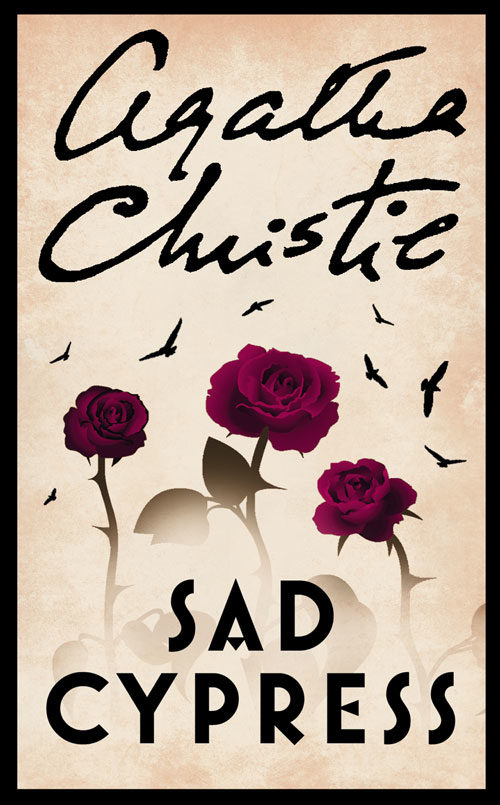- this edition a large print one published by Harper Collins in 2013 and supplied by my local library
- originally published in 1940
- ISBN 978-1-61173-770-7
- 318 pages
Synopsis (Christie.com)
An elderly stroke victim dies without having arranged a will. Beautiful young Elinor Carlisle stood serenely in the dock, accused of the murder of Mary Gerrard, her rival in love. The evidence was damning: only Elinor had the motive, the opportunity and the means to administer the fatal poison. Yet, inside the hostile courtroom, only one man still presumed Elinor was innocent until proven guilty: Hercule Poirot was all that stood between Elinor and the gallows.
Come away, come away, death.,
And in sad cypress let me be laid;
Fly away, fly away, breath!
i am slain by a fair cruel maid.
My shroud of white, stuck all with yew
O prepare it;
My part of death no one so true;
Did share it Shakespeare
My Take
As I am re-reading this novel for discussion with my U3A Agatha Christie Reading Group, I have decided to create a list of questions for our session. I think we will have plenty to talk about.
If you, blog reader, decide to answer any of my questions, please feel free to leave your responses as a comment.
Discussion Questions (not listed in any particular order)
- In what major ways does this novel differ from other Hercule Poirot ones?
- How does the structure of this book differ from most other Christie novels?
- Where does the title come from? What does it mean? Does it work as a title?
- There are several mysteries in Sad Cypress. How many can you list?
- What is the buried scandal in this novel? What clues are we given about it?
- How does Agatha Christie raise the issue of euthanasia? Do you think it is seriously done?
- Whom did you suspect of the murder(s)?
- Did Elinor ever love Roddy? Why did she break their engagement off?
- This novel was published in 1940. What period do you think it was set in? Why?
- Who committed the murder(s) and why?
- What is the irony in Mary making a will?
- What do you think of Elinor's state of mind?
- The first courtroom drama for Poirot, Sad Cypress was written in the build up to the Second World War, a particularly prolific period for Agatha Christie and her little Belgian. It is written in three parts – the defendant’s account, the build-up to the murder, and Poirot’s investigation. Reflecting upon the piece after publication, Christie decided it would have been better without the character of Poirot. Do you agree
- Apart from the title, there are other literary references in the novel. Which ones did you pick?
- How does Christie demonstrate her knowledge of poisons (and how they work)
- There is at least one reference in the novel that the "clean up brigade" who are sanitising the Christie books will have earmarked for removal. What did you pick up?
- What about the ideas that Mary Gerrard had been "educated above her station". Do you think Christie was serious in suggesting that? Who talks about the dangers of education?
- Hercule Poirot is amazed by the fact that everyone he talks to tells him
lies. Some are just small lies and he can understand why the person has
lied. But then he comes across a lie that seems unnecessary. The other
thing that prompts his involvement is that he becomes convinced that the
truth lies not in what he knows about Elinor Carlisle, but in what he
does not know about Mary Gerrard? What lies is he talking about?
- What is a curate's egg? (I've seen this used in reference to this novel)
- Which of the characters do you like best? least? Why?
- How does Poirot deliver justice?
- Does the novel have a happy ending?
- How much out of 5 do you give it?
- Some commentators say that this is a much under-appreciated novel. Do you agree?
My rating: 4.5

No comments:
Post a Comment